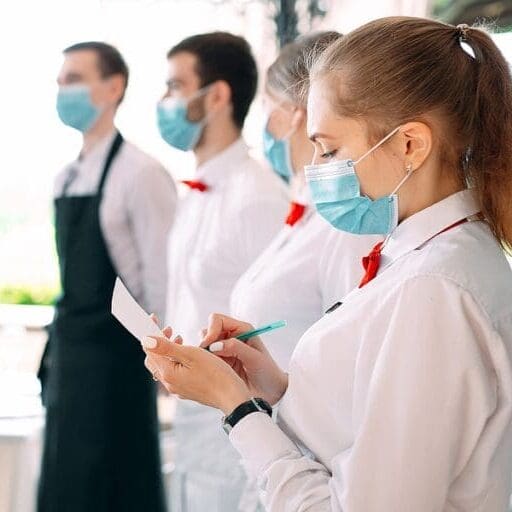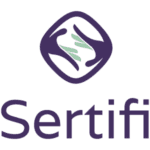 In the Art of War, Sun Tzu wrote: “When the thunderclap breaks out, it is too late to cover your ears”. For his part, Heraclitus, in a moment of great lucidity, affirmed that “only change is permanent”. Very nice words which, let’s face it, will unfortunately be of circumstance when you read this text.
In the Art of War, Sun Tzu wrote: “When the thunderclap breaks out, it is too late to cover your ears”. For his part, Heraclitus, in a moment of great lucidity, affirmed that “only change is permanent”. Very nice words which, let’s face it, will unfortunately be of circumstance when you read this text.
The maxim “All we have to fear is staying” also applies to the preventive approach that hospitality leaders must implement very quickly to ensure due diligence. It is a question of reputation and, even, survival. As a result of discussions with several managers over the past few days, it is clear that the temporary closure is, for the majority of them, fiction unfortunately become reality.
Faced with this inevitable situation, here is a 10-point checklist that can help you achieve a temporary closure which, this time, is not due to seasonality.
1. Physical security of the premises
Before leaving the premises for the duration, make sure that all the exterior doors are locked and that it is impossible for potential criminals to enter. A temporary closure should not create other problems. Therefore, go around and test all the doors, from the delivery platform to the employee accesses to the entrances intended for customers. Finally, collect the keys your team has in its possession (especially master keys), put away the knives and make sure that the perimeter is closed.
2. Water supply
It is essential to close all the water supply valves to avoid damage during your absence. If possible, consider emptying the pool as well as the thermal baths and spas for the duration of the closure to avoid the spread of bacteria and algae in your facilities.
3. Zero energy… or almost
Just like water, consider decommissioning all non-essential equipment that consumes energy. In this period when all actions will make a difference on the financial situation, the time is not for energy loss. Patrick Rochon, specialist in risk management and emergency measures at PREVENTIA, suggests “leaving the sprinklers, the fire alarm service, the video surveillance systems, the intrusion alarm and the natural gas pilots, the power supply and the generator. In addition, keep a minimum of heating to prevent freezing of the pipes and thus save huge costs in the event of plumbing failures”. Finally, remember to keep at least a fridge and a freezer (ideally), and a few lights outside to guarantee a semblance of physical presence on site.
4. Limit food losses
For all catering services offered (restaurants, cafes, cafeterias, room service), it is important to limit losses related to waste or poor inventory management, especially for perishable goods. Before leaving, consider sharing the food with the employees (who will need help with layoffs) and / or encouraging the various organizations working in this sector by making donations. In parallel, the management of residual materials must be done according to the rules of the art. Do not leave recycling bags, garbage cans or compost inside. This will prevent the presence of pests. For used oils, contact your supplier so that pickup can be done before closing. End your regular deliveries by notifying your stakeholders.
5. Ensure a human presence
As you know, a hotel is a very special place: 24 hours a day, 365 days a year, people gather there for a tourist experience. Therefore, it is recommended, during closing, to make sure that there are frequent patrols made during the day. Thus, a human presence on site proves to be a preventive action. Managers should request on-site observation reports on a daily basis. If you cannot get to the facility, bring the facility to you. Second, if you have an IP camera system, nothing prevents you from focusing by remote on monitoring building entrances and exits. Finally, ask for the cooperation of the police. Ask them to pass from time to time – especially at night – through the parking lot to make sure that no suspicious activity is taking place there. Also, do not forget that the visual surveillance of the premises must include a visit to the mechanical rooms and technical rooms to ensure that everything is working normally and that no damage is occurring. The link with the next point is therefore natural.
6. The insurance file
Notify insurance companies of your temporary closure and update them on the new number of employees your company has. Also, document all the actions you will have taken in the context of this troubled passage. Thus, by being in constant contact with your brokers, they could review the policy, adapt it and, perhaps save costs. That said, since a vacant building represents an additional risk for an insurer, they will appreciate being aware of what monitoring measures you have and will put forward during the temporary closure period. It is a good idea to provide them with a list of these measures by email, which they will keep on file.
7. Keeping activities at a distance
One of the most fundamental actions within the framework of a business continuity plan is the technological aspect which allows to remain operational despite the distance. Therefore, plan to save your data in a cloud-based fashion and have access to your PMS from home to continue to manage your room inventory and your reservations during this period. Also, it may be good to create a Messenger or a WhatsApp including the different managers of the crisis cell in order to improve communication.
8. Communicate, communicate, communicate
Before leaving the building, take the time to leave a note, on the main door, in your local languages depending on your location, which informs the clientele of the duration of the temporary closure. Update the information according to the involving situation. Also, take advantage of social networks as well as communication tools to share information with your community, reassure your present and future customers as well as your partners. Finally, inform your team on a daily basis so that employees are aware of developments and that they feel they have psychological support in this time of crisis. Remember that your employees, your workforce, are your main asset! No customer experience without employee experience: this philosophy applies, above all, in difficult times!
9. We get informed and we act
Panic can happen so easily. To avoid this, please read credible sources, do not expose yourself to over-information which leads – sometimes – to a decrease in productivity. At the same time, as resilience requires proactivity and learning from past situations, it is essential to add a “Pandemic Plan” section to your emergency plan. While you’re at it, dust off this document, update it, make security a priority, an investment, and allow time and resources to a business continuity plan (hello “quarantine” procedure). Also, stay apprised of the measures that governments are putting in place to compensate businesses impacted by COVID-19. For example, it is very likely that emergency services will need beds, rooms and private places to make up for the lack of hospital units in the near future and that the spring floods will bring complications for municipalities. Stay tuned and offer your services to the community if need be. Your hotel may reopen more quickly than expected.
10. Reintegration plan
Before returning to the building, it is important to make a plan based on clear and precise roles and responsibilities for each workstation. Each employee will have their role to play in ensuring a quick return to normal activities. Plan to reinstate employees a few days before the arrival of clients.
In Le Prince, Machiavelli warned Laurent II of Medici that “the usual fault of man is not to foresee the storm in good weather”. Let’s say that this COVID-19 thunderstorm was more than difficult to imagine. Now that we are faced with a fait accompli, let’s not give up. The work is just beginning. Let’s think about the recovery and look ahead. At that time, people will need us, to laugh, to get away. Let’s not forget that we are not only in the hotel business: we are, first and foremost, in the field of great customer experiences and memories. And that’s good for the future.
About the author
Jean-Thomas Henderson is a teacher in hospitality management at the Institut de tourisme et d’hotellerie du Quebec in Montreal. He is passionate about the chance he has to discuss issues with the citizens of tomorrow, those who will change the world. That’s the reason he became a specialist in security management and sustainable development: two of the main challenges of today’s hotel managers. Jean-Thomas is also a certified auditor for the Global Lighthouse Certification program and the exclusive ambassador of Sky Touch Global Hotel Security in North America. In parallel, he just launched Hotel Stories and Other Places, a book of 15 true-to-life short-stories drawn from the universe of the Quebec hotel industry, told from the viewpoint of its players, penned by local writers. These narratives afford the reader a glimpse into the day-to-day reality of the men and women who operate in the wings, behind the scenes at hotels.

















